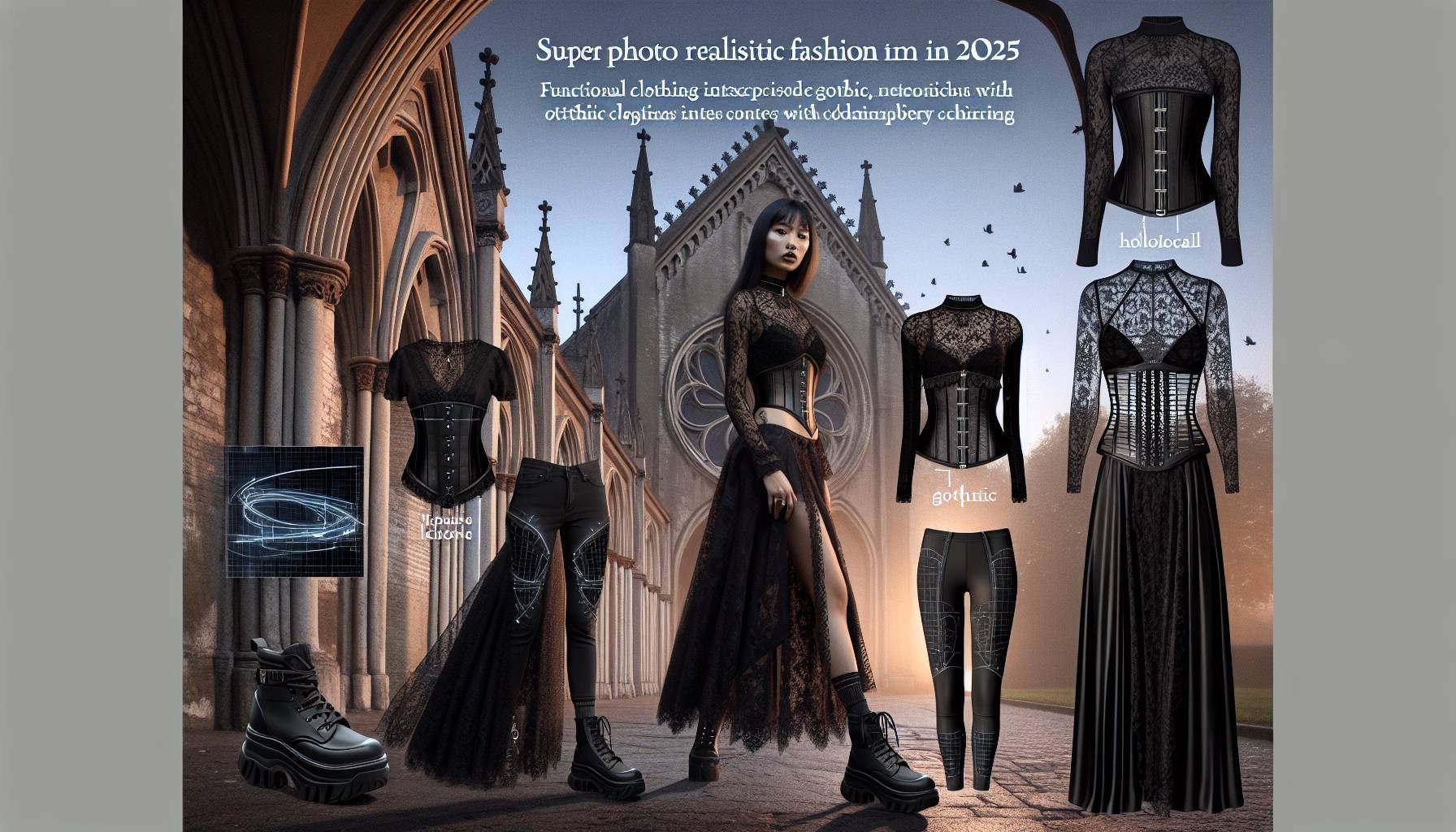redefining fashion consumption
Gen Z is reshaping the landscape of fashion consumption in Australia by prioritizing values that align with their personal beliefs and lifestyles. This generation is moving away from traditional fashion norms and embracing a more individualized approach to style. They are not just consumers but active participants in the fashion ecosystem, seeking out brands that reflect their values and offer authenticity.
Unlike previous generations, Gen Z places a strong emphasis on sustainability and ethical production. They are more likely to support brands that demonstrate a commitment to environmental responsibility and social justice. This shift is driving a demand for transparency in the supply chain, with young consumers wanting to know the origins of their clothing and the impact of their purchases on the planet.
Moreover, Gen Z’s fashion choices are heavily influenced by digital platforms and social media, where they discover new trends and connect with like-minded individuals. This digital-savvy generation values innovation and is quick to adopt new technologies that enhance their shopping experience, such as virtual try-ons and personalized recommendations.
As a result, the fashion industry in Australia is witnessing a transformation, with brands needing to adapt to these changing preferences. The focus is now on creating products that not only meet the aesthetic desires of Gen Z but also align with their ethical and environmental standards. This evolution in fashion consumption is setting the stage for a more conscious and connected future in the industry.
the role of pragmatism and purpose
Gen Z’s approach to fashion is deeply rooted in a blend of pragmatism and purpose, which significantly influences their purchasing decisions. This generation is characterized by a practical mindset, where functionality and versatility in clothing are highly valued. They prefer pieces that can be worn in multiple settings and styled in various ways, reflecting a desire for practicality in their wardrobes.
Purpose, on the other hand, plays a crucial role in shaping Gen Z’s fashion choices. They are driven by a strong sense of social and environmental responsibility, seeking out brands that align with their values. This generation is not just looking for products; they are looking for meaningful connections with brands that demonstrate a commitment to making a positive impact on the world.
In Australia, this dual focus on pragmatism and purpose is evident in the growing popularity of sustainable fashion brands and second-hand shopping. Gen Z consumers are more inclined to invest in high-quality, durable items that offer longevity, reducing the need for frequent replacements and minimizing waste. Additionally, they are enthusiastic about supporting local designers and businesses that prioritize ethical practices.
Social media platforms serve as a powerful tool for Gen Z to express their values and connect with brands that resonate with their ideals. They use these platforms to advocate for causes they care about and to hold brands accountable for their actions. This generation’s influence is prompting a shift in the fashion industry towards greater transparency and accountability, as brands strive to meet the expectations of these conscientious consumers.
implications for brands and marketers
For brands and marketers in Australia, understanding the unique preferences and values of Gen Z is crucial for success in the evolving fashion landscape. This generation’s emphasis on authenticity, sustainability, and ethical practices presents both challenges and opportunities for businesses looking to capture their attention and loyalty.
Brands must prioritize transparency and authenticity in their marketing strategies. Gen Z consumers are adept at identifying insincere or superficial attempts to align with their values. Therefore, it is essential for brands to genuinely integrate sustainable and ethical practices into their operations and communicate these efforts clearly and honestly. This includes providing detailed information about supply chains, production processes, and the environmental impact of their products.
Moreover, engaging with Gen Z requires a strong presence on digital platforms where they spend a significant amount of their time. Brands should leverage social media to create interactive and engaging content that resonates with this audience. Collaborations with influencers who share similar values can also be an effective way to reach and connect with Gen Z consumers.
Personalization is another key factor in appealing to this demographic. Gen Z values individuality and seeks out brands that offer personalized experiences and products. Utilizing data-driven insights to tailor marketing messages and product offerings can help brands build stronger relationships with these consumers.
Additionally, brands should consider the growing trend of second-hand and circular fashion, which aligns with Gen Z’s pragmatic and purpose-driven approach. Offering options for clothing resale, rental, or recycling can attract environmentally conscious consumers and demonstrate a commitment to sustainability.
Ultimately, brands and marketers must be agile and responsive to the changing preferences of Gen Z. By embracing innovation, authenticity, and sustainability, they can not only capture the attention of this influential generation but also contribute to a more sustainable and ethical fashion industry in Australia.
gen z’s pragmatic approach to fashion
Gen Z’s approach to fashion is marked by a distinct pragmatism that sets them apart from previous generations. This cohort, born between the late 1990s and early 2010s, is redefining how fashion is consumed and valued. Unlike their predecessors, Gen Z prioritizes functionality and sustainability over fleeting trends. They are savvy shoppers who demand quality and longevity from their purchases, often opting for timeless pieces that can be styled in multiple ways.
In Australia, this pragmatic approach is evident in the growing popularity of second-hand shopping and clothing rental services. Gen Z consumers are not only budget-conscious but also environmentally aware, seeking to minimize their carbon footprint by embracing circular fashion. This shift is driving brands to rethink their strategies, focusing on transparency and ethical production practices to meet the expectations of this discerning demographic.
Moreover, Gen Z’s digital fluency allows them to navigate online platforms with ease, making informed decisions based on peer reviews and social media influencers. They are adept at finding the best deals and are not afraid to mix high-end with high-street, creating unique looks that reflect their individual style. This generation’s pragmatic approach is reshaping the fashion landscape, pushing brands to innovate and adapt to a more conscious and connected consumer base.
the role of purpose in brand interactions
For Gen Z, purpose is not just a buzzword; it’s a fundamental aspect of their interaction with fashion brands. This generation is deeply invested in the values and ethics of the companies they support, seeking out brands that align with their own beliefs and social causes. In Australia, this translates to a growing demand for brands that are not only transparent about their supply chains but also actively contribute to social and environmental causes.
Gen Z consumers are drawn to brands that demonstrate a genuine commitment to sustainability, diversity, and inclusivity. They expect brands to take a stand on important issues, from climate change to social justice, and are quick to call out those that fall short. This has led to a rise in purpose-driven marketing, where brands are not just selling products but also promoting a lifestyle and values that resonate with this socially conscious generation.
Moreover, Gen Z’s engagement with brands goes beyond mere consumption. They are active participants in brand communities, using social media platforms to voice their opinions and influence brand narratives. This two-way interaction has empowered Gen Z to hold brands accountable, ensuring that their voices are heard and their values are reflected in the products they purchase.
In the Australian fashion market, brands that successfully integrate purpose into their business models are gaining a competitive edge. By prioritizing ethical practices and fostering genuine connections with their audience, these brands are not only capturing the attention of Gen Z but also building lasting loyalty. As this generation continues to shape the future of fashion, the role of purpose in brand interactions will only become more pronounced, driving a more conscious and responsible industry.

